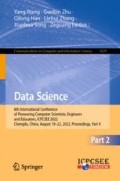Abstract
Through the correct teaching and game design, not only can innovation be carried out, but the highly effective network security teaching and the training solution countermeasure can also develop the student’s correct social behavior and value idea. Furthermore, through rule design and role play, students can improve the overall level of network security awareness and enhance their sense of cooperation during their studies. This paper defines the concept of a serious game and its significance to the network security curriculum of schools and designs the corresponding card game according to the feature of network security. The purpose of this paper is to strengthen overall network security awareness, cultivate professional skills, and enhance network security.
Supported by Hainan Provincial National Science Foundation of China, 621MS0789.
Access this chapter
Tax calculation will be finalised at checkout
Purchases are for personal use only
References
Wim, W.: Why and how serious games can become far more effective: accommodating productive learning experiences, learner motivation and the monitoring of learning gains. Educ. Technol. Soc. 22(1), 59–69 2019
Lezama, O.B.P., Manotas, E.N., Mercado-Caruzo, N.: Analysis of design patterns for educational application development: serious games. Procedia Comput. Sci. 175, 641–646 (2020)
De Troyer, O., Van Broeckhoven, F., Vlieghe, J.: Linking serious game narratives with pedagogical theories and pedagogical design strategies. J. Comput. High. Educ. 29(3), 549–573 (2017). https://doi.org/10.1007/s12528-017-9142-4
Checa, D., Miguel-Alonso, I., Bustillo, A.: Immersive virtual-reality computer-assembly serious game to enhance autonomous learning. Virtual Real. (2021). https://doi.org/10.1007/s10055-021-00607-1. (prepublish)
Yang, Y.: Analysis on the dilemma development strategies of higher vocational education in China. In: Analysis on the Dilemma Development Strategies of Higher Vocational Education in China, Chengdu, Sichuan, China (2021)
Zhou, Z.: The development of serious games in China. Intelligence (03), 247 (2019). (in Chinese)
De Gloria, A., Bellotti, F., Berta, R.: Serious Games for education and training. Int. J. Serious Games 1(1) (2014)
Laamarti, F., Eid, M., Saddik, A.E.: An overview of serious games. Inventi Impact Comput. Games Technol. 2015 (2015)
Deng, D.: The research and practice of serious games embedded in classroom teaching in colleges and universities in the era of ‘Internet+’. Educ. Teach. Forum (22), 242–243 (2020). (in Chinese)
Zhang, Q., Du, L.: The application and challenges of serious games in education. Educ. Technol. Equip. China (24), 111–112+117 (2018). (in Chinese)
Luo, Z., et al.: Improved flipped classroom network security technology game teaching research. Exp. Technol. Manag. 34(09), 164–168+172 (2017). (in Chinese)
Liu, L.: Application of project games in secondary vocational classrooms. J. Chengde Pet. Coll. 20(06), 81–84 (2018). (in Chinese)
Raquel, M., et al.: Design of a serious games to improve resilience skills in youngsters. Entertain. Comput. 40 (2022)
Sitthiphong, S., et al.: Expectations on online orthopedic course using constructivism theory: a cross-sectional study among medical students. Ann. Med. Surg. 67, 102493 (2021)
Chen, X.: From the ‘legitimate marginal participation’ to see the learning difficulties of beginners. Glob. Educ. Outlook 42(12), 3–10 (2013). (in Chinese)
Hart, S., et al.: Riskio: a serious game for cyber security awareness and education. Comput. Secur. 95, 101827 (2020). (prepublish)
Luh, R., et al.: PenQuest: a gamified attacker/defender meta model for cyber security assessment and education. J. Comput. Virol. Hacking Tech. 16(4), 19–61 (2020)
Valentino, S., et al.: Card game analysis for fast multi-criteria decision making. RAIRO Oper. Res. 55(3), 1213–1229 (2021)
Yong, T., et al.: Research on network security risk analysis method based on full traffic. J. Phys. Conf. Ser. 1792(1), 012038 (2021)
Shanjie, C.: Network security protection technology under the background of computing big data. J. Phys. Conf. Ser. 1982(1), 012207 (2021)
Author information
Authors and Affiliations
Corresponding author
Editor information
Editors and Affiliations
Rights and permissions
Copyright information
© 2022 The Author(s), under exclusive license to Springer Nature Singapore Pte Ltd.
About this paper
Cite this paper
Wang, K., Wang, P., Zhang, Y., Yang, D. (2022). Research on the Design and Education of Serious Network Security Games. In: Wang, Y., Zhu, G., Han, Q., Zhang, L., Song, X., Lu, Z. (eds) Data Science. ICPCSEE 2022. Communications in Computer and Information Science, vol 1629. Springer, Singapore. https://doi.org/10.1007/978-981-19-5209-8_6
Download citation
DOI: https://doi.org/10.1007/978-981-19-5209-8_6
Published:
Publisher Name: Springer, Singapore
Print ISBN: 978-981-19-5208-1
Online ISBN: 978-981-19-5209-8
eBook Packages: Computer ScienceComputer Science (R0)

